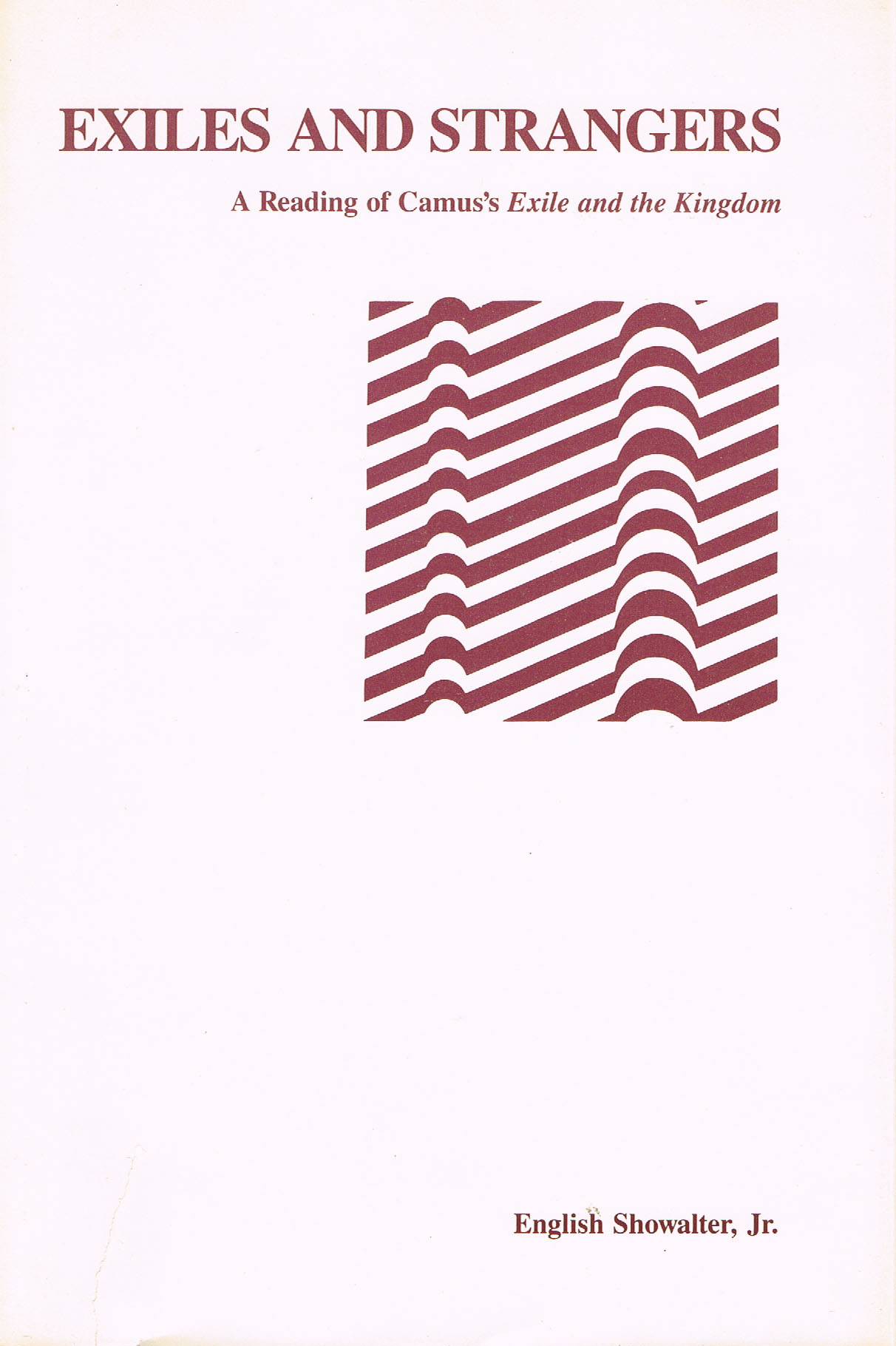Exiles and StrangersA Reading of Camus’s Exile and the KingdomEnglish Showalter, Jr. |
 1984 Literary Criticism / European / French 164 pp. 6x9 |
|||
|
read the full text of the book •
|
Though it seems incredible to us today, confronted as we are by an ever growing abundance of critical commentary on a writer who has taken his place as a major figure in world literature, at the time he received the Nobel Prize in 1957, Albert Camus was neither so well known nor so highly regarded as he has become, two decades after his death at age forty-six in an automobile accident in 1960. Camus’s short career was difficult and his reputation remained controversial. Though the pubic warmed to his books, most of which became bestsellers in both France and the United States, critics and journalists began to take Camus seriously only after his popularity made it impossible to ignore him. And it is surprising that, with the flood of books and articles that followed this belated recognition of the man who, according to the citation of the Nobel judges, “illuminated the problems of the human conscience in our times,” critics have paid so little attention to the last book to appear in Camus’s lifetime: the collection of short stories entitled Exile and the Kingdom (L’Exil et le royaume). Five of the six stories had appeared in the United States in various mass-circulation magazines before the collection was issued in book form in 1958. Critics tended to find fault with certain of the stories, to prefer others, and to ignore the collection as a unified work—thereby fragmenting its message. Professor Showalter assumes the thematic unity that Camus identifies in the title, and undertakes a systematic study of the individual stories for what can be learned from each as a separate work and from the frequently noted obscurity of their endings—a device that, Dr. Showalter argues, helps to explain Camus’s durable and general popularity. For where there is obscurity, it is admitted as a difficulty posed by problems that are murky, insoluble, and real—a difficulty, not just for the reader, but for the fictional character and, implicitly, Camus as well. The note of perplexity with which Camus’s stories always end virtually demands that the reader formulate extensions beyond the text into real plausability—into our world, not his fictional construct. In his final years, Camus the pagan adopted a form of perception that was profoundly indebted to the Judeo-Christian tradition. Without abandoning the fundamental concept of his thought, the experience of the absurd, he enriched his vision by acknowledging a human nature murkier than before. Not only were good and evil problematic, but simplicity and sincerity as well. A refusal to lie becomes, in one story, another form of lie. A kind of primal fall is involved, mythical in human nature, but real and historical in Camus’s thought, and transformed by his art. There is evidence in Exile and the Kingdom of Camus’s reconsideration of religious faith—particularly in the final story, The Growing Stone, in which the simple faith of the people teaches something about human freedom. The miracles, the vows, the processions, the Jesus to whom prayers are addressed, may all be fictions; but so is any human account of the universe. What is important is the context established—a context in which even religion may become a means to the realization of the highest aspirations of Camus’s morality: perfect lucidity with regard to the nature of one’s relations with other people; and a shared solidarity with other human beings that is based on respect for their freedom and an awareness of a common fate. English Showalter, Jr., is Professor of French at the Camden College of Arts and Sciences of Rutgers University. | |||

